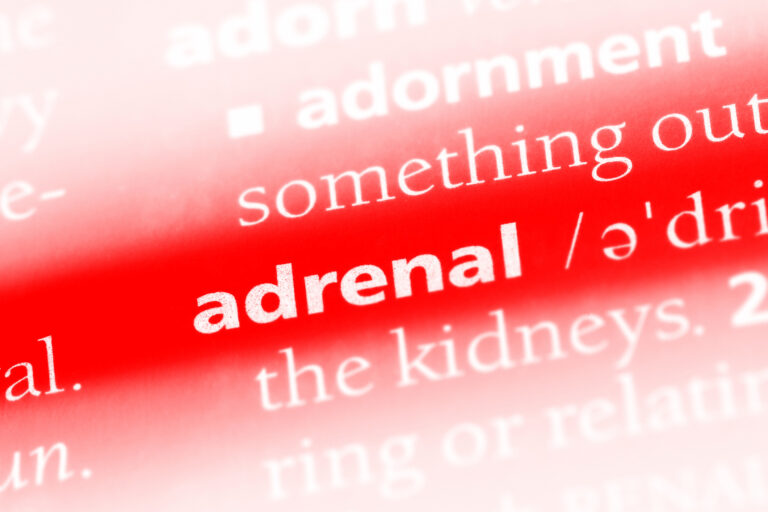The adrenal gland is an important player in a symphony with other endocrine glands, responsible for the direction of many hormonal activities in the body. Its function is both complex and unique. Mostly known for its role in the “fight or flight” mechanism, the adrenals (2 glands that sit atop each kidney) play an integral role in stress, energy, sugar metabolism, weight, sex hormone regulation and more.
When discussing adrenal health, several terms need to be clarified: Adrenal Insufficiency is a term reserved for the medical disease which constitutes a measureable lack of production of adrenal hormones, especially cortisol and aldosterone. Addison’s Disease is the official medical term applied to this medical condition. It is a serious condition that may result in severe abdominal pains, significant muscle weakness, fatigue, depression, kidney failure and others. It is usually precipitated by an accident, severe stressful event, surgery, serious injury, or bad infection.
Cushing’s Syndrome is a medical disease that results from significant overproduction of cortisol which can also result in fatigue, and weak muscles, but also ulcers, significant weight gain, high blood pressure, and high blood sugar to name just a few of the symptoms.
Adrenal Fatigue is a common term applied when the adrenals are not diseased, as above, but not well either. It is not considered a medical condition, and not even recognized by conventional medical doctors. It is, however, a more common term that natural health practitioners use to identify a syndrome that is in the “grey area” between good function and disease.
The adrenal glands play a pivotal role in the production of energy, especially sustained energy throughout the day. They are part of the “ricochet romance” that occurs between other endocrine (hormone-producing) glands in the body. These include: the pancreas, thyroid, sex hormones, pituitary, hypothalamus, liver and others. Without good adrenal health, success in managing conditions of any of those glands is difficult at best.
One of the hormones produced by the adrenals, cortisol, is critical for many functions. It is a “good” hormone when released in small amounts, a “bad” hormone when it surges. In proper excretion it converts to “cortisone”, our body’s natural anti-inflammatory hormone. It is also the hormone that maintains resistance to stress, regulates glucose, maintains mood and emotional stability, maintains minerals, and mobilizes fatty acids needed for fuel for energy production.
The bad part of cortisol is when it surges. Then it tells the body to store more fat, especially around the waist, increases blood pressure, increases muscle breakdown, demineralizes bone, interferes with the healing process, especially of the skin, suppresses the immune system, increases inflammation and blood sugar, messes with estrogen, and results in poor memory. Stress and eating sugar are the two elements that cause cortisol to surge.
Weak or “tired” adrenals are mostly caused by sugar, caffeine, and alcohol intake, stress, and inadequate sleep. Fortunately, there is much that can be done to improve adrenal health.
©2012 Holly A. Carling, O.M.D., L.Ac., Ph.D.







